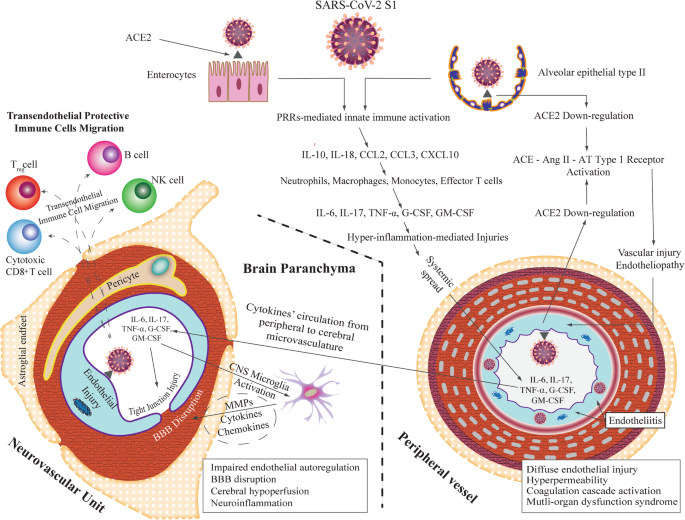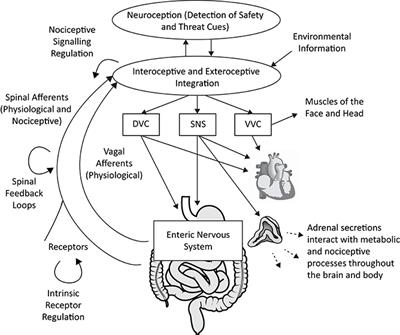
Symptoms of CNS diseases result from dysfunction of or loss of function of neurons. There are numerous disorders of the nervous system.

Many conditions may also affect the peripheral nerves of the body leading to loss of sensation and paralysis.
Pathophysiology of nervous system. This is caused by rupture of a blood vessel within the brain leading to pressure over vital areas of the brain and this may cause paralysis and weakness of the limbs. Pathophysiology of the nervous system. Article in Russian Kryzhanovskiĭ GN.
2882464 PubMed - indexed for MEDLINE MeSH Terms. Nervous Systemphysiopathology Nervous System Diseasesphysiopathology. 11272012 1 Pathology of Nervous System Peerayut Sitthichaiyakul MD.
Department of Pathology Faculty of Medicine Naresuan University Nervous System. In addition to neurons the nervous system contains neuroglial cells that serve a variety of immunologic and support functions and modulate the activity of neurons. Understanding the pathophysiology of nervous system disease requires knowledge of neural and glial cell biology and the anatomy of neural networks.
There are numerous disorders of the nervous system. Some may affect the brain and spinal cord while some affect the peripheral nervous system. Many conditions may also affect the peripheral nerves of the body leading to loss of sensation and paralysis.
Physical injury to the peripheral nerves is a common condition that affects their. Pathophysiology of AD. Tangles are flame shaped.
Cortical nerve cell processes become twisted and dilated because of accumulation of the same filaments that form tangles. Amyloid also is deposited in cerebral arteries causing an amyloid angiopathy. Groups of nerve cells especially terminal axons degenerate and coalesce around an amyloid core.
Pathology of higher nervous activity - Pathophysiology of Nervous System Admin March 23 2021 The pathophysiology of higher nervous activity studies the mechanisms of occurrence and development of deviations from the normal functioning of the higher functions of the human and animal brain. A disease in which prions mutate into deadly pathogens and slowly damage a cows nervous system. Chronic progressive fatal disease of the central nervous system caused by a prion.
Symptoms of CNS diseases result from dysfunction of or loss of function of neurons. Come off of the cell body. Receive signals from other cells.
Where is the axon terminal. Other side of the cell body. The axon is the.
Long part that connects the cell body to the axon terminal. Over the last few years there have been huge advances made in our understanding of the interactions between the brain and the gut the enteric nervous system. This book is particularly relevant in the understanding diagnosis and management of irritable bowel syndrome the most common functional disorder of the bowel.
Sporadic they can be found in a broad range of degenerative neurological dis - orders. In the central and peripheral nervous system their presence may be related to normal older age 136. The wide variation in the degree of involve - ment of skeletal muscle and peripheral nerve do not make them a.
The study of the pathophysiology of nervous system diseases is an important challenge in Biomedicine to develop new successful therapies. Neurological and psychiatric disorders can disrupt molecular pathways synapses neuronal and glial subpopulations and local circuits in specific brain regions as well as higher-order neural networks. Pathophysiology of cns 1.
Pathophysiology of thePathophysiology of the nervous system. Violation of sensory motor. Actuality of the lectureActuality of the lecture The nervous system as a main regulatory system of an organism in.
The nervous system is comprised of two major parts or subdivisions the central nervous system CNS and the peripheral nervous system PNS. The CNS includes the brain and spinal cord. The brain is the bodys control center.
The CNS has various centers located within it that carry out the sensory motor and integration of data. Pathophysiology of the enteric nervous system con- sidering the general processes that may cause disease including disordered development inflammation and stress. There then follow sections on functional disorders of the esophagus stomach small and large bowel and.
Nervous System Pathophysiology Part 1 of 3 Sympathetic parasympathetic for NCLEX - YouTube. A retrospective case series demonstrated that the neurological symptoms include central nervous system CNS symptoms or diseases headache dizziness impaired consciousness ataxia acute cerebrovascular disease and epilepsy peripheral nervous system PNS symptoms hyposmia hypogeusia hypopsia and neuralgia and skeletal muscle symptoms.